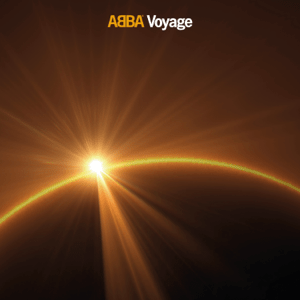In what seemed like an impossible turn of events, ABBA has formally reunited after a hiatus of nearly 40 years. On Nov. 5, the Swedish pop legends released “Voyage,” their first studio album since their breakup in 1982, as well as plans for an accompanying tour.
Within three days of its announcement at the end of last August, the album was already breaking preorder sales. At a glance, it seemed like “Voyage” was already shaping up to be a resounding success, but as a fan, it was difficult to be entirely optimistic about the album’s release. While it was exciting to think we might be graced with another “Dancing Queen” or “Lay All Your Love On Me,” it was entirely possible that the band just didn’t have their je ne sais quoi anymore, be that due to age, too much time away from the studio or just a lack of passion. Fortunately, this was not the case.
It’s relieving to say that after four decades out of the business, ABBA can still produce some all-around great material. Though vocalists Agnetha Fältskog and Anni-Frid Lyngstad lack some of the range of their earlier years, they remain impressively capable of belting pop-like choruses and intimate ballads. The standout of the album is undoubtedly “Just A Notion.” It’s catchy, beautifully simple, almost Beach Boys-esque and would not seem out of place on a greatest hits compilation. Knowing this, it wasn’t a surprise to find out that the track was originally recorded in 1978 with plans to be released on “Voulez-Vous” the next year. One might hear that and doubt the quality of the album’s more recent compositions, but songwriters Björn Ulvaeus and Benny Andersson show no signs of losing their touch. In addition to “Just A Notion,” the first half of “Voyage” includes “Don’t Shut Me Down” and “I Still Have Faith In You,” both of which similarly recreate that same 1970s ABBA groove.
“Keep An Eye On Dan” and “No Doubt About It” also warrant mentioning, and though comparatively weaker than the singles, they are still enjoyable and make an earnest attempt at rounding out the album’s second half. Each of these tracks is musically solid. While lyrics often saw Ulvaeus and Andersson returning to old themes of love and broken relationships, many songs had a markedly wistful, aged tone, speaking on topics like parenthood and reminiscence. While this is by no means an innovation, it does keep “Voyage” from purely being a “young person’s album,” which in the end was a necessary choice. It feels as if the band is recognizing the truly massive scope of their audience, providing both a sense of thematic closure to those who grew up on them, as well as the same Top 40 hit material younger fans loved and still love now. It would seem like a betrayal for “Voyage” to be anything less than a celebration of the impact ABBA has had on all generations.
That said, “Voyage” is far from perfect. There are some tracks on this album that totally kill its momentum. One of the most perplexing inclusions is “Little Things.” After starting out strong with two solid tracks, the band decides to follow up with … a Christmas song? Why? Who knows. It’s cute, complete with a children’s choir and everything, but it really has no place on the album.
“Bumblebee” is another drag. The flute introduction is very reminiscent of “Fernando” and might seem like more of a tasteful nod and less of a rehash if it wasn’t the only good part of the song. “Ode To Freedom,” the final track, is painfully lackluster. It’s a shame this song got the placement it did, especially considering how many great tunes this album actually has. Along with a catchy opener, a memorable closing track can often make the difference between a good and a great album. If this song was simply switched with “No Doubt About It” or scrapped entirely, maybe the album could’ve made a better first impression, but as it stands, the rocky last third of “Voyage” leaves a regrettably mediocre taste in the mouth.
In the end, how does “Voyage” stack up? As far as expectations go, if you’re a fan of ABBA, what you want is probably close to what you’re going to get. In simple terms, this album is more of the same old ABBA. The band makes an effort not to take inspiration from any modern trends in their songwriting, which thankfully preserves the signature Scandipop sound that characterized most of their biggest hits but also leaves virtually no room for any kind of experimentation. The result is a collection of songs that try and ultimately succeed in reviving the feel of a classic ABBA album but do little else. Can you really compare “Voyage” to hit powerhouses like “Arrival” and “Super Trouper” or the near-disco mastery of “Voulez-Vous”? Not exactly, but ABBA fans would be remiss if they didn’t at least check this one out.
Rating: 3 out of 5 stars



